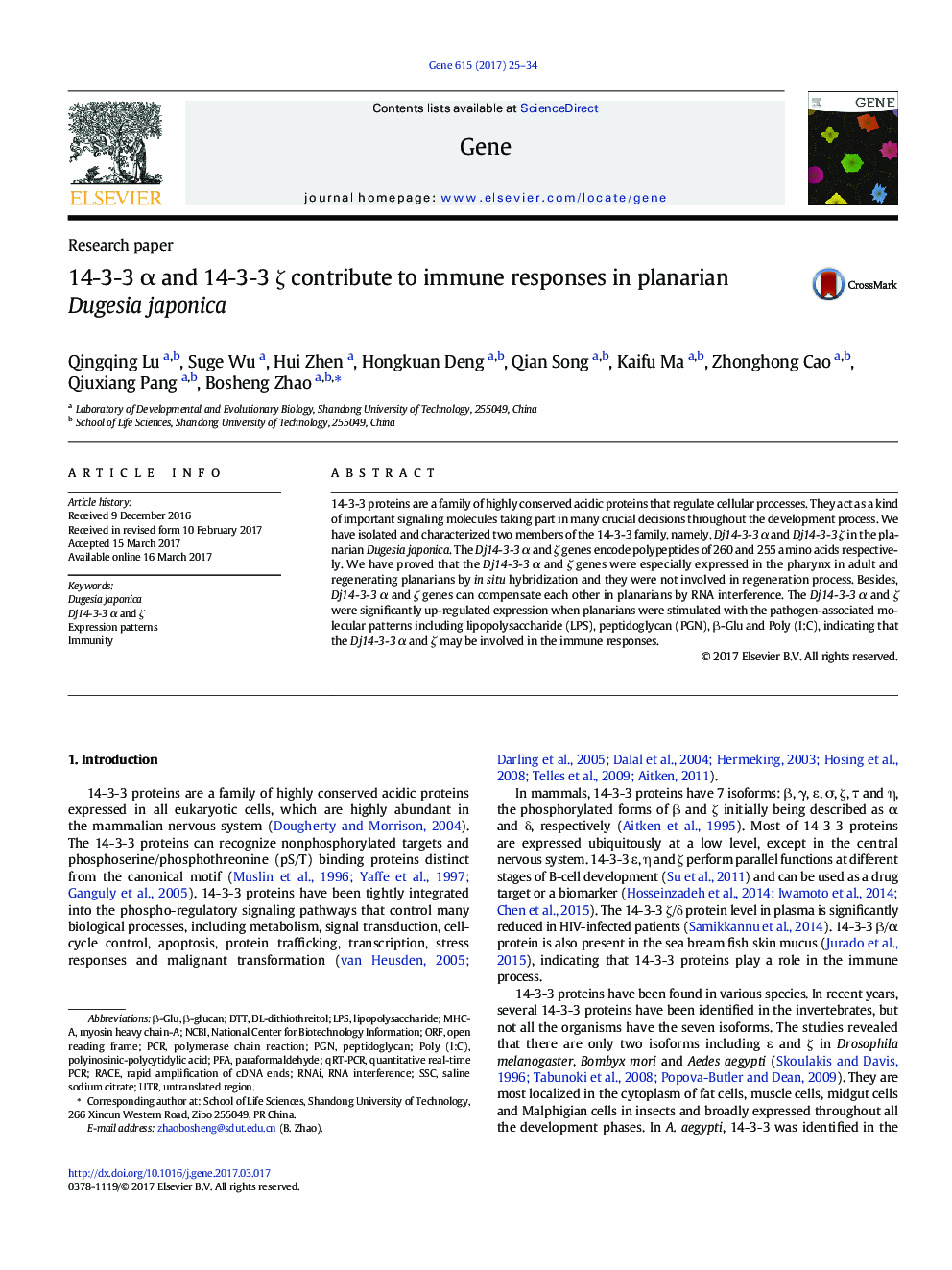| Article ID | Journal | Published Year | Pages | File Type |
|---|---|---|---|---|
| 5589799 | Gene | 2017 | 10 Pages |
â¢Both 14-3-3 α and 14-3-3 ζ (Dj14-3-3 α and Dj14-3-3 ζ) genes were isolated and characterized from planarian Dugesia japonica.â¢Dj14-3-3 α and Dj14-3-3 ζ are predominantly expressed in the pharynx of intact and regenerating planarians.â¢Loss function of Dj14-3-3 α and ζ by RNA interference during planarian regeneration did not affect the pharynx regeneration.â¢Dj14-3-3 α and ζ may participate in the immune response upon pathogen invasion.
14-3-3 proteins are a family of highly conserved acidic proteins that regulate cellular processes. They act as a kind of important signaling molecules taking part in many crucial decisions throughout the development process. We have isolated and characterized two members of the 14-3-3 family, namely, Dj14-3-3 α and Dj14-3-3 ζ in the planarian Dugesia japonica. The Dj14-3-3 α and ζ genes encode polypeptides of 260 and 255 amino acids respectively. We have proved that the Dj14-3-3 α and ζ genes were especially expressed in the pharynx in adult and regenerating planarians by in situ hybridization and they were not involved in regeneration process. Besides, Dj14-3-3 α and ζ genes can compensate each other in planarians by RNA interference. The Dj14-3-3 α and ζ were significantly up-regulated expression when planarians were stimulated with the pathogen-associated molecular patterns including lipopolysaccharide (LPS), peptidoglycan (PGN), β-Glu and Poly (I:C), indicating that the Dj14-3-3 α and ζ may be involved in the immune responses.
